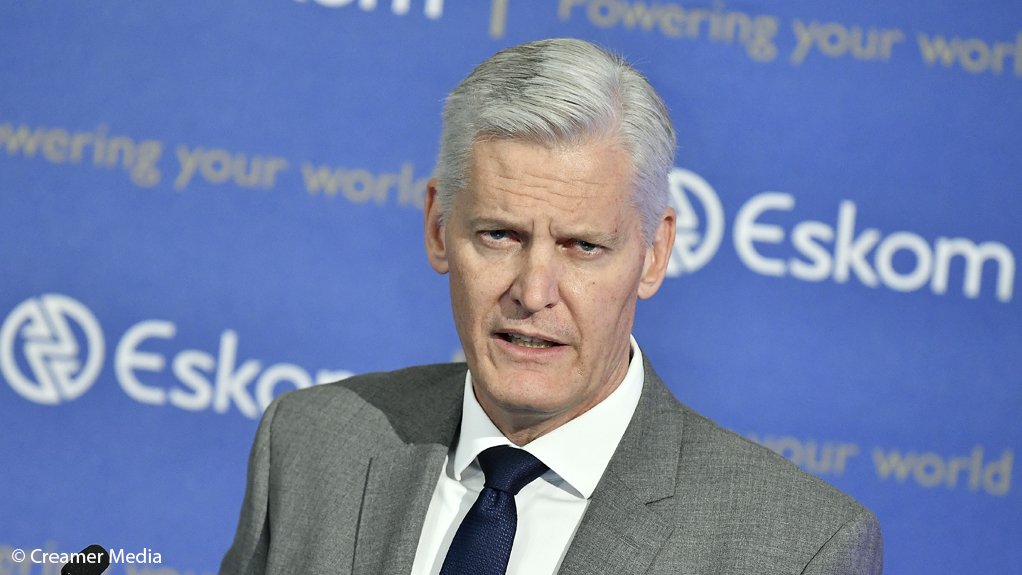Parliament's lawyers will write to former Eskom CEO André de Ruyter to solicit the controversial intelligence reports he commissioned, the chairperson of the Standing Committee on Public Accounts (Scopa), Mkhuleko Hlengwa, said on Friday.
The committee is holding a series of hearings about the allegations made by De Ruyter that Eskom was in the grip of organised criminal syndicates with links to senior politicians. De Ruyter has said this came to light in an intelligence-driven investigation he initiated, conducted by George Fivaz Forensic and Risk in 2022.
So far, none of the entities and people called to the Scopa hearings have admitted to possessing the reports.
The intelligence reports have grown increasingly controversial since it was revealed by News24 last month that they were poor quality and packed with conspiracy theories and unverified information. The committee also intends to call De Ruyter to appear before it again in the next few weeks, along with SAPS Brigadier Jap Burger and others.
On Friday, President Cyril Ramaphosa's national security advisor, Sydney Mufamadi, gave Parliament new clarity on what the government knew about the reports and how it had responded.
Mufamadi said that De Ruyter had briefed him at a meeting in his office last July, which had been arranged by Minister of Public Enterprises Pravin Gordhan. This was in contrast to Gordhan's version at the committee last week, in which he said De Ruyter had not properly informed him of the intelligence operation and had told him "in passing."
But Mufamadi described the meeting "as a serious meeting" to which he was formally invited.
The invitation for me to attend came from Minister Gordhan, who said he would get a report from Mr De Ruyter and that if there was any decision to be made, I could advise him. That is why I went.
At the meeting, De Ruyter had given him a flavour of what was in the intelligence report but had not given him the report to take away, nor did he ask for it.
"What he said was enough for me to advise De Ruyter to interact with the law enforcement agencies. I said that from the Presidency's side we would make sure that if law enforcement needed any support, it would be provided."
Mufamadi said that following his advice to De Ruyter, he spoke to SAPS National Commissioner Fannie Masemola, who confirmed that he was in touch with De Ruyter and that criminality at power stations in Mpumalanga was already under investigation. He said he regarded this as the best way to discharge his responsibilities, as the allegations made raised by De Ruyter had to be properly investigated and verified.
Asked by several MPs why he did not see it as necessary to request the report, Mufamadi said that his role as advisor to the president was at a strategic level, and it was not appropriate to become "the investigating officer".
Mufamadi, like Gordhan, also refused to provide the names of the senior politicians De Ruyter had told the two of them were implicated in Eskom corruption. He said it was also inappropriate to pass the names on to Ramaphosa.
"Was there any name dropping? Yes, there was a mention of names, but I am not prepared to mention them… When names are mentioned in a context such as this, my advice is to interact with law enforcement agencies… Once the investigators have verified everything they need, they will make a decision on who should be informed… If I had to get excited and mention those names, I would be doing an injustice to those people," he said.
Mufamadi would not be drawn on his view of whether national security had been compromised by De Ruyter, who was not vetted by the State Security Agency and yet had been in charge of a company at the heart of the country's security. As this was a matter on which he had advised Ramaphosa, he said he was not at liberty to give his view and suggested that the committee should seek its own advice.
EMAIL THIS ARTICLE SAVE THIS ARTICLE
To subscribe email subscriptions@creamermedia.co.za or click here
To advertise email advertising@creamermedia.co.za or click here











